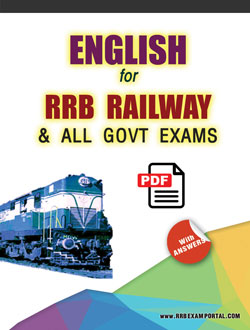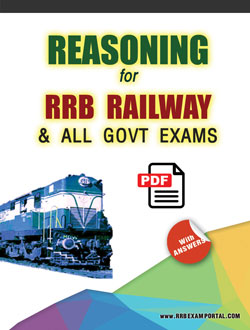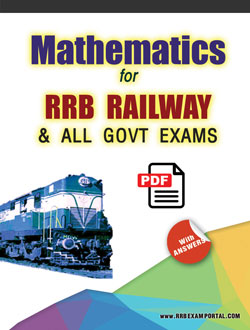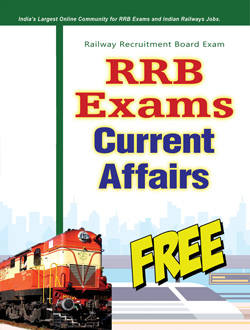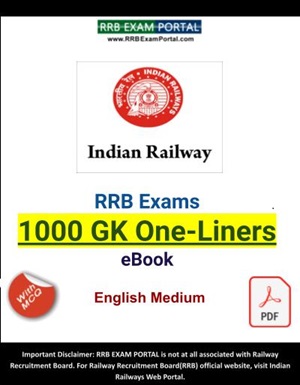Free Study Material For RRB Examination: English (Common Error)
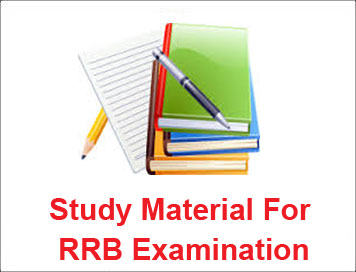
Free Study Material For RRB Examination
Subject : English (Common Error)
1. Articles
1. Articles: There are three articles in English—a, an
and the. A and an are called indefinite article.The is the definite article. An
article is placed before a noun. If there is an adjective before a noun, the
article is placed before the adjective:
a train, a fast train, an incident, an unusual incident
Note: We can never use a singular count noun alone, that is, without a/an/the/my/some/any etc.
2. A/an: Singular count nouns take the indefinite
article a/an with them:
a ball
an egg
a dog
an elephant
Uncount nouns do not generally take an article with them. we
do not generally say
a milk
a beauty
a wisdom
for milk, beauty, wisdom cannot be counted.
3. We use a with singular count nouns beginning with a
consonant sound:
a girl a map auniversity a union
a one-sided affair a one-rupee note
Note: That the words university, union, and one begin with a vowel but no a
vowel sound. University and union begin with the yoo sound while one begins with
the w sound.
Well-known words which begin with a vowel but take a with them are:
European uniform union unit
universal usual useful eau-de-cologne
4. An: An is used before words beginning with a vowel
sound:
an umbrella an opportunity an honest boy an honourable person
The letter h in honest and honourable is not sounded. Common words in English
which begin with an unsounded h are:
heir heiress honest honorary
honourable hour hourly
5. In abbreviations, if consonants begin with a vowel sound, they take an before them:
an M.P.
an S.P.
But if consonants begin with a consonant sound, they take
a before them:
a Ph.D.
a B.Ed.
6. Note the use of a in the following phrases:
a pity a shame
a pleasure a noise
a rage a nuisance
a headache a toothache
a bad cold in a whisper
in a low voice in a loud voice
to be at a loss
7. The definite Article the: The, the definite article, is a weakended form of that. It is pronounced as (di:) when it preceded a vowel sound and as do before a consonant sound. In meaning also, it is weaker than that. Instead of pointing out, it defines, particularises or singles out:
I have read the book you are talking of. (not any book but a particular book that is being referred to)
The artists who came to seem me today are quite accomplished. (not any artists but the ones who came to see me today)
8. In the examples given in § 7, the book and the artists are particularised by two adjective clauses. In certain cases, a noun's being particular may be clear from the context and it may not have any defining expression with it. The is also prefixed to such a noun:
Shut the door. (the door of the room in which we are sitting)
He was brought before the Principal. (The Principal of the
institution in which he was studying)
The king pardoned him. (the king we are talking about at the moment)
9. If I am looking at the picture of a room, I can talk about the ceiling, the floor, because there is only one ceiling and one floor, but I cannot talk about the wall if there are more than one walls in the picture because I would not be talking about the only one. I can, however, talk about the left wall and the right wall because there is only one left wall and one right wall in the picture.
10. More about the: We use the definite article the
1. with superlatives and the words used in the superlative
sense:
the best student in the class
the Chief Justice
the Prime Minister
2. when special emphasis almost equivalent to the use of
the superlative is intended:
He is the leader today. (the greatest leader)
This is just the thing. (the right thing)
This is the way to solve this problem. (the proper way).
3. even in comparative degrees when one of the two items
is singled out in preference to the other:
He is the moon, the world, (But not: He is the finer batsman than others.
The correct form would be : He is a finer bats man than others.)
4. with things of which there is only one in our world, or
things which are otherwise well known but do not begin with a capital letter:
the sun, the moon, the world, the equator, the north, the east.
5. in place of possessive adjectives:
I hit him on the head. (= his head) Disappointment stared him in the face.(
= his face)
6. with common nouns when one noun is used to represent
the whole class or species:
The horse is a faithful animal.
The lion is the king of animals.
7. with an adjective with a plural notion to indicate a
class of persons:
The rich should help the poor. (We can say: Rich men should help poor men
But not: The rich men should help the poor men.×)
8. as an adverb in case of certain comparatives:
The more we get, the more we want.
The harder you work, the better it will be.
9. to suggest distribution: (= each)
We can buy oranges by the dozen.
Cloth is sold by the metre.
